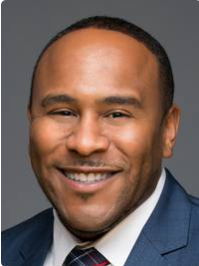Riviera Beach moves forward with anti-bias policy for contracting

RIVIERA BEACH — Riviera Beach City Council members this week gave preliminary approval to a plan that would bar firms bidding for city business from engaging in discrimination.
The plan, which could get final approval in late July, would establish a citywide policy not to enter into contracts with businesses that discriminate in their selection or treatment of vendors, suppliers, subcontractors or customers. It would also establish a formal complaint and investigative process for alleged violations of the policy, and it would provide a process for hearing evidence and issuing findings, recommendations and sanctions.
It is not yet clear what specific penalties firms would face if they are found to be in violation of the policy, but Assistant City Manager Elizabeth McBride made clear there would be "consequences" for firms that discriminate.
City managers' pay: Big job, big pay: Salaries at $200,000-plus, car allowances part of city manager norm
Travel expenses: Inspector General Office critical of Riviera Beach's lack of internal travel expense review
Fane Lozman: Fane Lozman wins again over Riviera Beach, this time prevailing in 'stupidest case ever'
"Within all of these clauses, there are consequences if the parties do not abide by them," McBride told City Council members as she explained the framework of the plan.
Those consequences, McBride said, "might range from termination of the person's contract" and/or "prohibitions to them bidding on other contracts."
Councilman Douglas Lawson, who has led the majority Black city's push to determine whether women- and minority-owned firms are getting an equal shot at government contracts, had hoped to have such a policy in place long ago as a Baltimore lawyer conducts a formal disparity study in Riviera Beach.
"There were always excuses, staffing restraints," Lawson said. "There were so many other needs in the community. It just kind of fell by the wayside."
One reason the city has not yet moved forward with an anti-discrimination policy is the absence of a procurement manager, whose duties would include overseeing the policy. Riviera Beach has been without a permanent procurement manager since August, when Althea Pemsel left the position.
McBride said a new procurement manager should be in place at some point in July, which is when the city also expects to get the disparity study draft information from Baltimore attorney Franklin Lee, who has developed a specialty in advising governments on contracting programs.
Disparity studies, a necessary step to provide the legal justification for the establishment of a government program aimed at making sure women- and minority-owned firms are getting a fair shot at contracts, have proved to be divisive when conducted in other jurisdictions.
That was certainly the case in Palm Beach County four years ago, when, after a study found that women- and minority-owned firms were getting a smaller chunk of government contracts than their presence in the market suggested they should get, the county moved to establish a women/minority business enterprise program, referred to in the industry as a W/MBE program.
Disparity studies and the women and minority assistance programs frequently justified by them have been opposed by white business owners who view them as a form of reverse discrimination. Many women and minority business owners, however, view them as essential tools needed to level the playing field.
Four years ago, as white-owned businesses complained about disparity studies conducted for Palm Beach County, Lee reviewed the methodology of a study conducted by the county's Solid Waste Authority. He found the methodology to be sound.
Riviera Beach news: Race, politics and big money at forefront of coveted Riviera Beach garbage contract
And: Riviera Beach, Palm Beach County officials mark groundbreaking of $35 million affordable apartments
'Reimagine Riviera Beach' plan coming together: $1.5 million approved; new City Hall site set
Federal court rulings, most specifically in the landmark U.S. Supreme Court Richmond v. Croson decision of 1989, have held that cities can't require that some contracts or portion of contracts go to firms owned by women or minorities if a city hadn't first established a need for such a requirement.
Since the 1989 ruling, individual lawyers and firms have been hired by governments to study whether there are disparities in the number and value of contracts awarded to firms owned by women and minorities in comparison with those awarded to white-owned firms.
When disparities are found, governments have often moved forward with a program that requires some contracting work be awarded to firms owned by women and minorities, which often don't have the same access to capital as white-owned firms and which also don't always have the types of relationships with government decision-makers as white-owned firms.
The establishment of a W/MBE program in Riviera Beach would be a well-timed boon to women- and minority-owned firms in the city, which is expected to spend hundreds of millions of dollars over the next several years upgrading and constructing facilities.
Lawson said that, until the need for such a program can be determined, an anti-discrimination policy would be a helpful stopgap.
"We have half a billion dollars in development coming down the pike," he said before he and his colleagues voted unanimously in favor of the draft anti-discrimination plan. "This is a step. This is excellent in making sure that we have an understanding that discrimination is not going to be accepted in our community and that we give ample opportunities to everyone."
Wayne Washington covers West Palm Beach, Riviera Beach and race relations. E-mail tips to wwashington@pbpost.com.
This article originally appeared on Palm Beach Post: Riviera Beach, awaiting disparity study, advances anti-bias plan
